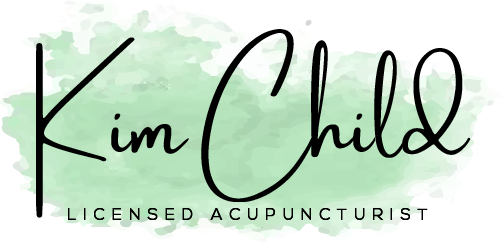Is Weight Gain Inevitable During Perimenopause? Pt 1
Obesity and weight gain can be a major issue for many women during peri to pause and often considered a serious health risk. Why? Conventionally speaking weight gain causes metabolism issues, insulin resistance which elevates the risk if type 2 diabetes, osteoporosis, cardiovascular and risk of cancer. Stat’s points out the average gain is 2 - 5 pounds during the transition.
Midlife Weight Gain Facts & Figures
Hormones
Yes they do impact metabolism, weight gain can originate from the decline of hormones or the ever changing levels. Research points to a rapid fall in estrogen causing an accumulation of fat distributed in the lower abdomen & bottom. Additionally the decline of sex hormones adds an additional 4.88% risk of developing lower abdominal weight compared to pre menopausal women.
During perimenopause estrogen levels fluctuate so the body looks for a replacement which turns out to be our fat deposits. This fat produces estrone (a weaker version of estrogen). Our bodies are very smart, locating areas to build up more fat to replace the estrogen. Often located around the waist, hips and bottom.
Dieting
Many of us have been on diets over the years, the stats show 65% of us have tried to loose weight on a diet. 2 million women try fad diets each year. Many diets withdraw calories in a severe way which often causes the body to just store fat to save energy to survive, not a natural process we actually want!
As we age it gets harder to loose weight, from a Chinese medicine perspective this is due to a weakened digestive system due to yo- yo dieting which is awful for the digestive system and never works.
Calorie Levels & Activity
If we all think back to our teens, childbearing years and caring for young children our bodies needed many more calories to support the energy output (pregnancy, breastfeeding, toddler). As we age from a physiological view we don’t require those calories anymore, it’s estimated we should cut 200 calories from daily intake as we enter midlife. (perimenopause)
Water Works
For some women, a reduction in hormone levels cause cystitis due to declining bladder strength. This issue can stop many women from exercising for fear of leaking or not having a toilet close by. I urge you not to stop exercising if this is an issue for you. There are some great programs out there to strengthen the pelvic floor. Acupuncture has a long history of supporting & restoring pelvic floor, reducing bouts of cystitis and managing prolapse (vaginal & anus).
Our Complex Emotions & Food
Life can be full of issues, but when we enter midlife all the sudden some big questions can come up for most women. Pressure in a high power job? Questions about relationships? Missing the uncomplicated days when your role seemed more aligned to your needs? These issues are unique to each person. I encourage you to think about yours if your struggling with weight gain which might be causing a negative relationship with food:
- Eating to soothe underlying emotions.
- Eating under stress and rushing to the next thing.
- Skipping breakfast & lunch then feeling wiped out by 3 pm.
- Eating quickly.
- Eating in front of a screen, disconnecting from nourishment.
These choices weaken the digestive system and ultimately cause weight gain. As we all know this is a vicious circle which builds a dependency on unhealthy meal choices.
External Life Pressures
Caring for ageing parents, dealing with teenagers and older children. The pandemic magnified underlying pressures in many relationships leading many women to think about gender bias within their partnership. This can lead to tiredness, loss of self esteem, loss of maintaining self care as one reorganises priorities to serve others. These life pressures can also lead to the same rabbit hole of eating which often isn’t based in our self care goals.
Natural Muscle Loss
It may seem like a minor issue which goes un-noticed for sometime but it’s important! Muscle mass decreases anywhere from 3 to 8% per DECADE after the age of 30! The rate of decline really increases after the age of 60. So we can see were this is going… progressive muscle loss will lead to inactivity.
As you enter the post menopause years it’s hard to turn the situation around if some resistance training hasn’t been part of your weekly routine. It seems as one looses muscle, fat just takes it’s place. This of course leads to insulin resistance and the road to Type 2 Diabetes.
Basically use it or you loose it! Grab a few weights and resistance band for home use, literally do 15 minutes a day. You won’t notice a difference in a month or maybe even two, but eventually this practice will pay huge benefits.
Joint Stiffness
Often this can come and go and you may find pain in odd places which moves around. Even worse, pain at the spot of an old injury!
Another benefit of estrogen is it’s ability to reduce inflammation in the body. So, yes you got it, as it decreases this is why strange migrating stiffness and pain happens. Again this stops many from being active due to pain.
Try low impact exercise to manage days when pain is more severe. (Light yoga, swimming & low impact stationary weight training.)
Consider acupuncture for joint pain, it can provide some great results.
